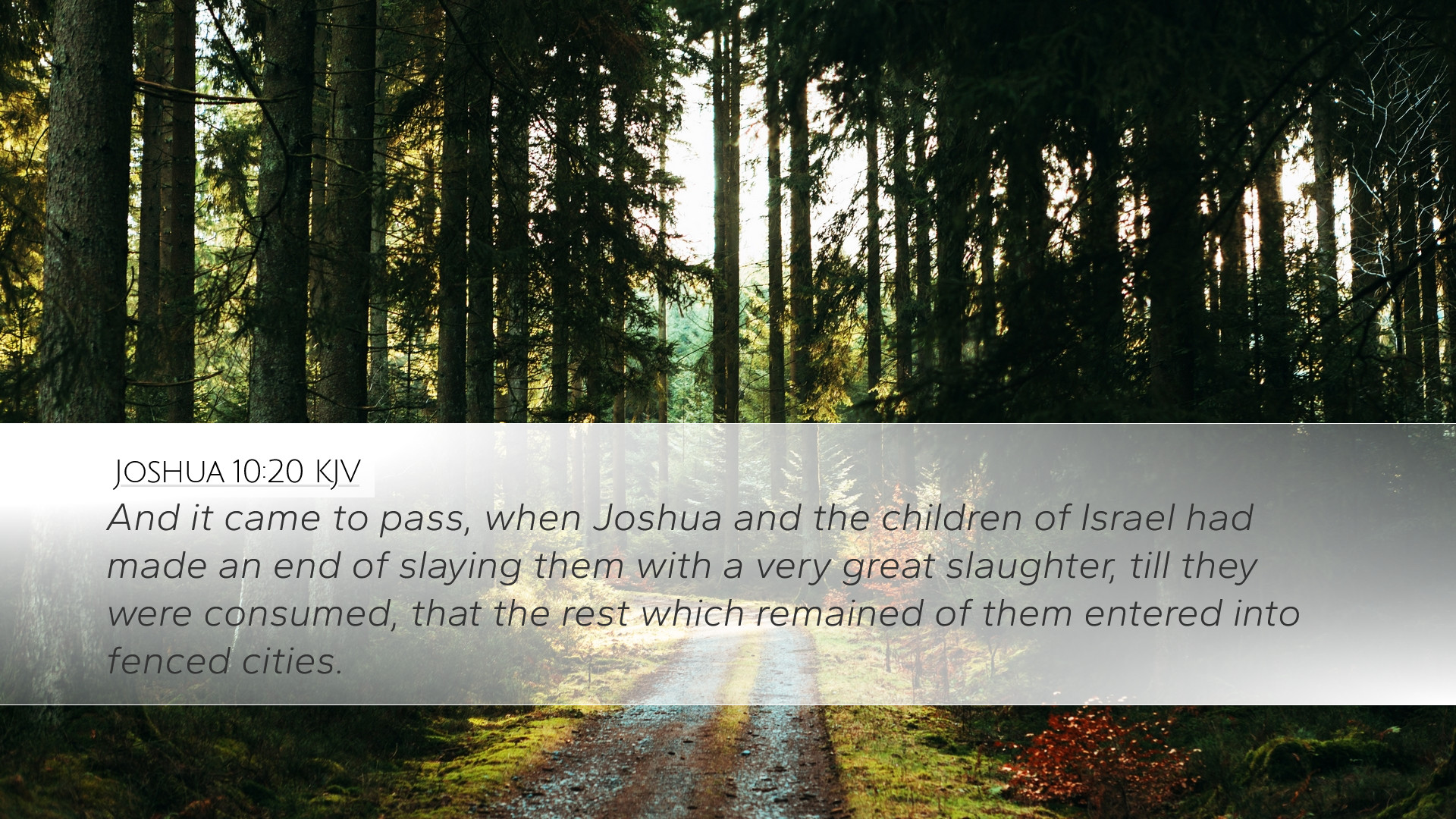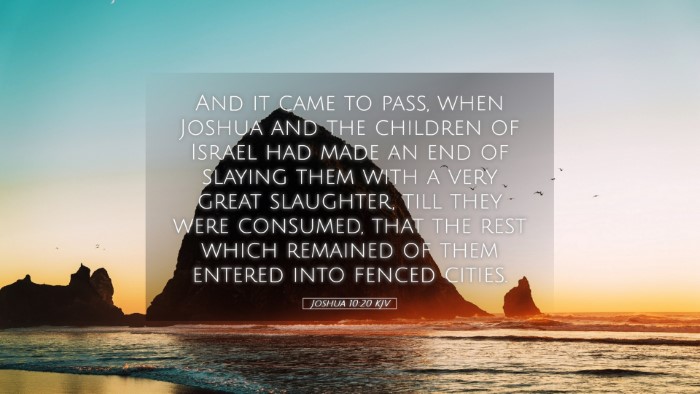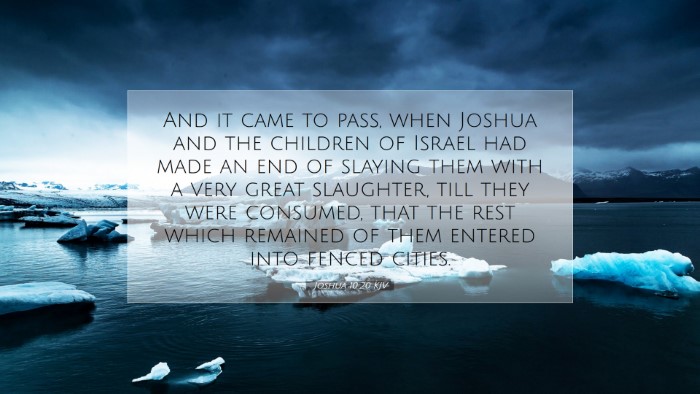Commentary on Joshua 10:20
Joshua 10:20 states: "And it came to pass, when Joshua and the children of Israel had made an end of slaying them with a very great slaughter, till they were consumed, that the rest which remained of them entered into the fenced cities." This verse marks a significant moment in the narrative of the Israelite conquest of Canaan, wherein Joshua leads the Israelites in a decisive victory over the Amorite kings.
Contextual Background
This passage occurs after a series of miraculous events where God has assisted Israel in their campaigns against their enemies. The chapter chronicles the alliance formed by five Amorite kings against Gibeon, which had made a peace treaty with Israel. Subsequently, the Israelites are drawn into battle to defend Gibeon.
Historical Significance
The defeat of the five kings represents not only a military victory but also demonstrates the sovereignty of God in the affairs of Israel. Matthew Henry emphasizes that this episode underscores the futility of resisting God and His plans for His chosen people.
Theological Insights
From a theological perspective, Joshua 10:20 illustrates key themes such as divine intervention, judgment, and faithfulness. The passage serves as a reminder of God's promise to deliver Israel from their enemies. Albert Barnes notes that the described “very great slaughter” reflects both the seriousness of God's judgment upon the nations inhabiting Canaan and the necessity of Israel's purging of these adversaries to secure their covenant land.
Divine Sovereignty and Human Agency
This verse encapsulates the tension between divine action and human responsibility. The narrative suggests that while God assured victory, the actual battle required the active participation of Joshua and the Israelites. Adam Clarke remarks that God's providential care and direction are manifested through the leadership of Joshua, who executes his military duties as commanded.
Structural Analysis
The verse functions as a pivotal summary of the battle's outcome, serving to transition the reader from the intense conflict to the aftermath. The use of the terms “slaying” and “very great slaughter” conveys the seriousness of the conflict, indicating not merely physical devastation but also the spiritual and moral implications of such violence. This descent into violence is juxtaposed against the hope of Israel's fulfillment of God's promise.
Symbolism of the Fenced Cities
The reference to “fenced cities” symbolizes both literal fortified cities and a deeper representation of the spiritual strongholds that Israel must confront. From a spiritual warfare perspective, the concept of “fenced cities” serves as a metaphor for the barriers that can exist between God's people and their divine inheritance. Henry articulates that these fortified places illustrate the obstacles in spiritual growth that must be recognized and dismantled through faith and perseverance.
Practical Applications for Ministry
From this commentary, pastors and theologians can draw several applications:
- Perseverance in Battle: Just as Joshua did not relent until every enemy was defeated, believers are called to persist in their spiritual battles against sin and opposition.
- Divine Assurance: This text encourages congregants to trust in God's promises despite overwhelming circumstances, reminding them that God's sovereignty ensures victory.
- Importance of Community: Joshua leads a collective effort, illustrating the strength found in unity; churches must engage in collective prayer and action in the face of spiritual challenges.
- Judgment and Grace: Reflecting on the judgment of the Amorite kings can lead to discussions about God’s justice and mercy, underscoring the importance of repentance and the offer of salvation in Christ.
Conclusion
Joshua 10:20 stands as a critical reminder of the dynamics between God’s overarching sovereignty and the active engagement required from believers. The historical context, combined with theological reflections, reveals deep insights pertinent to both scholars and practitioners of the faith. The verse invites readers into a deeper understanding of God’s nature as both a warrior and a gracious protector of His people.


